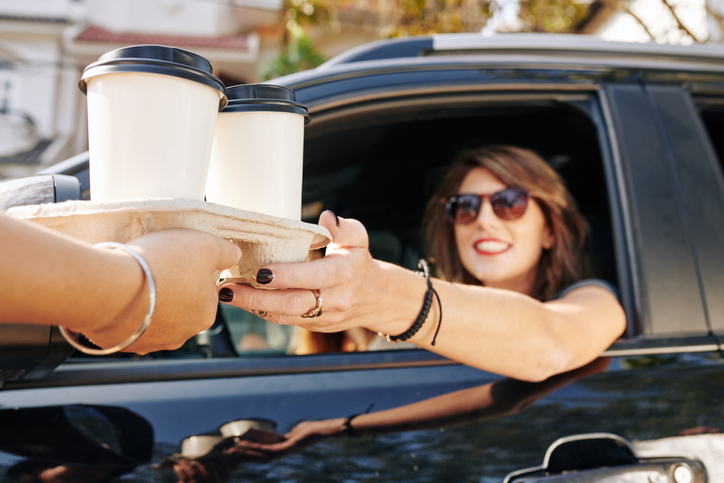
Drive-through Coffee: The Infamous Multi-Million Injury Lawsuit Revisited

When is the Best Time for Someone to Buy My Structured Settlement?
June 24, 2022
How Selling Annuity Payments for a Lump Sum Can Change Your Life
December 29, 2022Drive-through Hot Coffee Injury Lawsuit Revisited

The McDonald’s hot coffee case is one of the most well-known product liability lawsuits in recent history. In 1992, Stella Liebeck was a 79-year-old woman who was severely burned after spilling hot coffee on herself at a McDonald’s restaurant. Liebeck sued McDonald’s, claiming that the company was responsible for her injuries.
If you’re receiving structured settlement payments as the result of an injury lawsuit case, and you’d like to receive money sooner, then DRB Capital can help. Contact us today at 877-894-4541 to learn how to turn your future payments into a lump sum of cash.
McDonald’s Coffee Case Summary
The case went to trial, and a jury ultimately awarded Liebeck $2.86 million in damages. The verdict was later reduced on appeal, but the case sparked a national debate about whether coffee should be served at such high temperatures.
Lawsuit Details
On July 25, 1992, McDonald’s customer Stella Liebeck spilled hot coffee on herself and sued the restaurant. The jury awarded her $2.86 million in damages, which was later reduced to $640,000. The case became known as the “McDonald’s coffee case” and is often used as an example of “frivolous” litigation.
The coffee was served to Liebeck at a McDonald’s drive-through window. She was in the passenger seat of her grandson’s car and was holding the cup between her knees when she removed the lid to add cream and sugar. The coffee spilled onto her lap, causing third-degree burns on 6 percent of her body.
 Liebeck was hospitalized for eight days and underwent skin grafting. She sued McDonald’s for negligence, strict liability, and breach of warranty. The jury found that McDonald’s was 80 percent at fault for the incident and awarded Liebeck $2.86 million in damages. The damage award included $160,000 for medical expenses, $80,000 for lost wages, and $1.5 million for pain and suffering. The jury also found that McDonald’s had been negligent in serving “unreasonably dangerous” coffee and that the company had not warned customers of the coffee’s high temperature.
Liebeck was hospitalized for eight days and underwent skin grafting. She sued McDonald’s for negligence, strict liability, and breach of warranty. The jury found that McDonald’s was 80 percent at fault for the incident and awarded Liebeck $2.86 million in damages. The damage award included $160,000 for medical expenses, $80,000 for lost wages, and $1.5 million for pain and suffering. The jury also found that McDonald’s had been negligent in serving “unreasonably dangerous” coffee and that the company had not warned customers of the coffee’s high temperature.
The judge reduced the damages to $640,000, the maximum amount allowed under New Mexico law. McDonald’s appealed the verdict, but the parties eventually settled out of court for an undisclosed sum.
After the Trial
Since the Liebeck case, McDonald’s has changed its coffee-serving policies. The company now serves its coffee at a lower temperature and provides warnings to customers about the potential risks of spilled coffee.
 Despite these changes, hot coffee lawsuits are still common. Just recently, a woman decided to pursue a case against Dunkin’ after a similar incident happened at a drive-thru, and she spilled hot coffee in her lap.
Despite these changes, hot coffee lawsuits are still common. Just recently, a woman decided to pursue a case against Dunkin’ after a similar incident happened at a drive-thru, and she spilled hot coffee in her lap.
What does this mean for injury and accident victims? Anyone who has ever been injured by negligent behavior or products may have a case against the restaurant. These cases can be complex, so speaking with an experienced personal injury attorney is essential to learn more about your legal rights and options.
Personal injury vs. Product Liability
Two types of legal claims can arise from injuries caused by defective products: personal injury and product liability. Personal injury claims are based on the theory of negligence, while product liability claims are based on the idea of strict liability.
Personal injury claims require the injured person to prove that the manufacturer or seller of the defective product was negligent. To succeed on a personal injury claim, the injured person must show that the manufacturer or seller knew or should have known about the defect and failed to take steps to correct it.
Product liability claims, on the other hand, do not require the injured person to prove negligence. Instead, the injured person only needs to show that the defective product caused the injury. Product liability claims can be based on one of three theories: design defects, manufacturing defects, or marketing defects.
Personal injury lawsuits and product liability cases sometimes go together. A plaintiff in a personal injury lawsuit may have been injured due to the negligence of another, but not necessarily due to a faulty product. In a product liability case, on the other hand, the injured party was hurt directly due to a defective product. Although the McDonald’s coffee lawsuit may seem like a personal injury lawsuit, the jury ultimately determined that the coffee was “defective.”
I am Selling Structured Settlement Payments

If you received a large settlement from a personal injury or product liability lawsuit, you might have received the monetary award in the form of a structured payout. Although a structured settlement will pay out your award periodically rather than upfront, you have options if you ultimately decide a structured settlement isn’t the right fit. When you have a structured settlement, in most cases, you could sell your payments for a lump sum of cash. This can be a great way to get the money you need without waiting for your periodic payments.
When selling structured settlement payments for a lump sum of cash, you can sell all your future payments or just a portion of them. You can also choose to sell only a part of each payment rather than the entire amount. Once you find a reputable buyer and agree on a sale price, the buyer purchases your payments, and you’ll receive a lump sum of cash.
To learn more about selling structured settlement payments for a lump sum of cash, contact DRB Capital at 877-894-4541 to get started.
DRB Capital does not provide professional financial or legal advice and the Site is not intended as a substitute for professional financial or legal advice. Persons accessing this information assume full responsibility for the use of the information and understand and agree that DRB Capital is not responsible or liable for any claim, loss or damage arising from the use of the information. All content provided is for informational purposes only. DRB Capital makes no representations as to the accuracy, completeness, currentness, suitability, or validity of such content and will not be liable for any errors, omissions, or delays in this information or any losses, injuries, or damages arising from its display or use.

